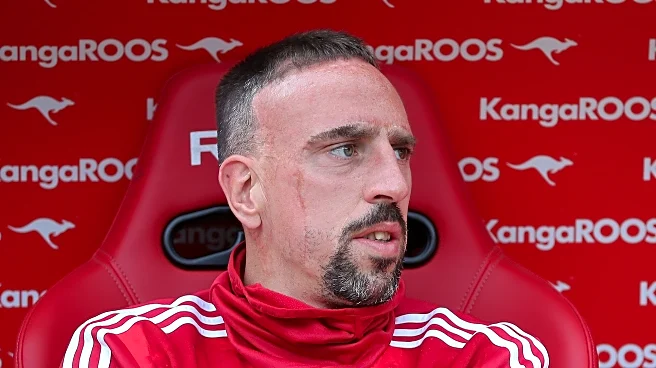What's Happening?
Maersk is testing a blend of Brazilian ethanol with methanol and marine diesel for its vessel engines as part of its decarbonization efforts. The initiative aims to reduce the maritime shipping sector's
carbon footprint, which accounts for about 3% of global greenhouse gas emissions. Maersk, representing 15% of the global maritime shipping market, is testing a blend with 10% ethanol. If successful, this could create demand for 50 billion liters of ethanol globally per year. The tests are set to be completed by October 23, followed by bunker fuel testing. Maersk plans to negotiate with major Brazilian ethanol producers if the tests prove successful.
Why It's Important?
Maersk's initiative to test Brazilian ethanol as a fuel mix represents a significant step towards reducing carbon emissions in the maritime industry. By potentially opening a new market for Brazil's ethanol industry, this effort could lead to substantial environmental benefits and economic opportunities. The adoption of ethanol as a marine fuel could help the industry achieve its decarbonization goals, contributing to global efforts to combat climate change. Successful implementation could also drive innovation and investment in alternative fuels, setting a precedent for other shipping companies to follow.
What's Next?
If the ethanol blend tests are successful, Maersk plans to begin negotiations with major Brazilian ethanol producers, including Raizen, Copersucar, Inpasa, FS, and Atvos. This could lead to the widespread adoption of ethanol as a marine fuel, creating new economic opportunities for Brazil's ethanol industry and furthering Maersk's goal of achieving net-zero emissions by 2040. The maritime industry will be closely watching the results of these tests, as they could influence future fuel choices and sustainability strategies.









